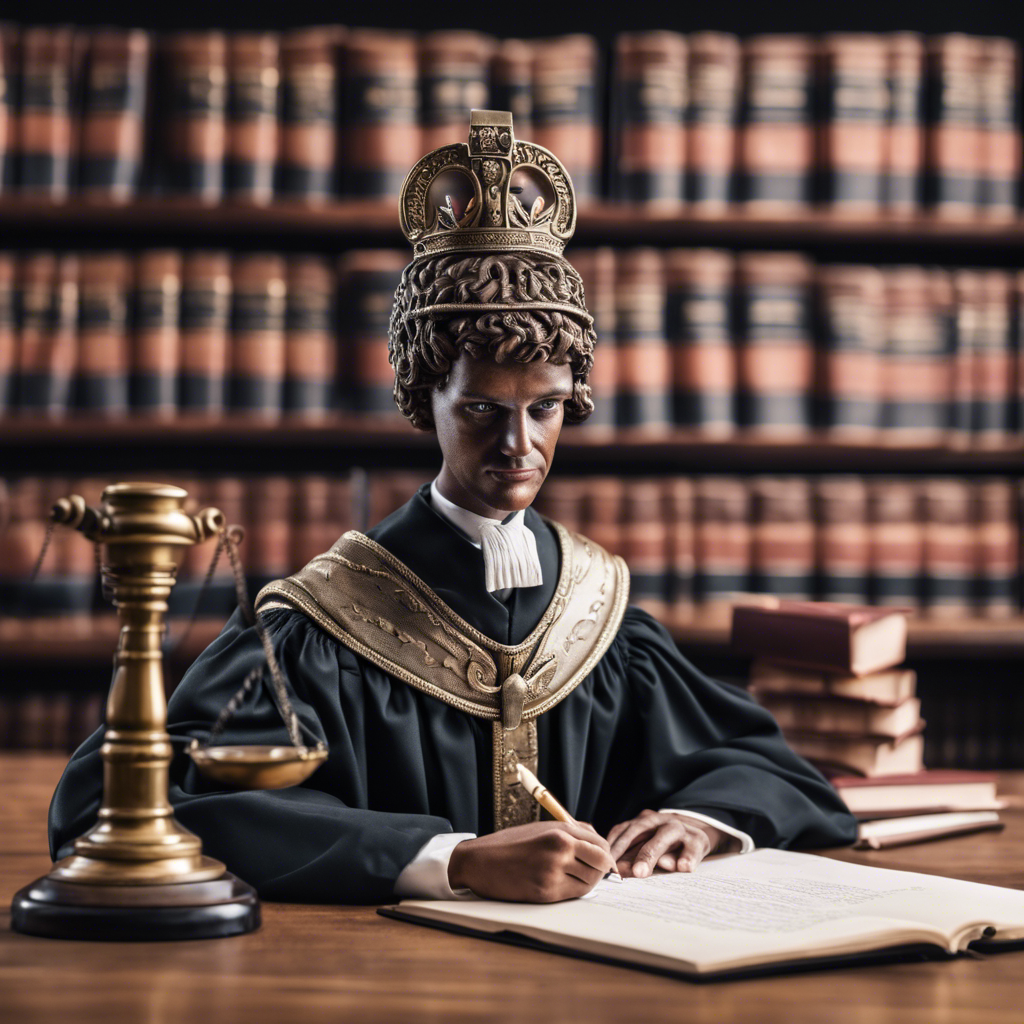Judges in England and Wales Granted Permission to Use AI for Writing Legal Opinions

The cautious adoption of artificial intelligence by the English legal system marks a significant step forward, allowing judges to utilize AI in writing opinions while maintaining human oversight and responsibility.
The 1,000-year-old legal system in England, known for its deep-rooted traditions, has embraced the use of artificial intelligence (AI) to aid in the production of legal rulings. The Courts and Tribunals Judiciary recently issued guidance stating that AI can be utilized by judges to write opinions. However, it emphasized that AI should not be used for research or legal analyses due to its potential to generate fabricated, misleading, inaccurate, and biased information. This cautious approach reflects the legal profession’s slow embrace of technological change, but it also positions the courts at the forefront of grappling with the regulation of AI.
AI and the Judiciary: A Delicate Balance
As scholars and legal experts contemplate a future where AI could potentially replace lawyers, assist in jury selection, or even make decisions, the recent guidance from the English judiciary demonstrates a measured approach. AI’s impact on the judiciary is a topic of unique concern, with a strong emphasis on maintaining human involvement. Ryan Abbott, a law professor at the University of Surrey, believes that the disruption caused by AI in judicial activities might be slower compared to other areas, as the legal community proceeds with caution.
Legal experts have commended the judiciary’s guidance, recognizing its relevance to courts and jurists worldwide who are either eager to adopt AI or apprehensive about its implications. While England and Wales have taken a significant step forward in addressing AI in the courts, it is worth noting that they are not the first to do so. Five years ago, the European Commission for the Efficiency of Justice of the Council of Europe issued an ethical charter on the use of AI in court systems. This document, although not up to date with the latest technology, outlined core principles such as accountability and risk mitigation.
In contrast, the United States has yet to establish comprehensive guidance on AI in the federal court system, although individual courts and judges have set their own rules. Cary Coglianese, a law professor at the University of Pennsylvania, noted that the English guidance is one of the first comprehensive sets of guidelines in the English language that broadly applies to judges and their staff.
Embracing AI with Caution
The recent guidance from the English judiciary reflects an acceptance of AI while maintaining a cautious approach. Giulia Gentile, a lecturer at Essex Law School, commended the document but raised concerns about the lack of accountability mechanisms and the absence of specific indications regarding enforcement and sanctions. Gentile questioned how the guidance would work in practice and who would oversee compliance.
The guidance emphasizes the limitations of AI and potential problems that may arise if users are unaware of its inner workings. It specifically warns against the use of chatbots, such as ChatGPT, which gained attention for its ability to swiftly generate written content. The pitfalls of relying on chatbots in court were highlighted when two New York lawyers used ChatGPT to write a legal brief that quoted fictional cases, resulting in fines and criticism from a judge.
To maintain the integrity of the court, judges in England and Wales are advised not to disclose private or confidential information to chatbots. The guidance also highlights that AI systems are primarily trained on legal material from the internet, often based on U.S. law. While AI can be used as a secondary tool to assist judges in writing background material or summarizing information they already know, it is not yet capable of providing convincing analysis or reasoning.
AI as an Auxiliary Tool for Judges
Despite its limitations, AI can be a valuable tool for judges with heavy caseloads who routinely write lengthy decisions. It can assist in tasks such as locating familiar materials quickly, drafting emails or presentations, and providing background information. Appeals Court Justice Colin Birss praised how ChatGPT helped him write a paragraph in a ruling, stating that it provided a summary of an area of law he was already familiar with, saving him time and effort.
Conclusion: The approval for judges in England and Wales to use AI in writing legal opinions signifies a cautious but significant step toward embracing technological advancements in the legal field. The guidance issued by the judiciary showcases a careful balance between utilizing AI as a helpful tool while maintaining human oversight and responsibility. While concerns about accountability and enforcement remain, the guidance sets a precedent for courts worldwide and sparks a broader conversation about the role of AI in the legal system. As the legal profession navigates the complexities of AI, it is clear that the future of the judiciary will involve a delicate integration of human judgment and technological assistance.

